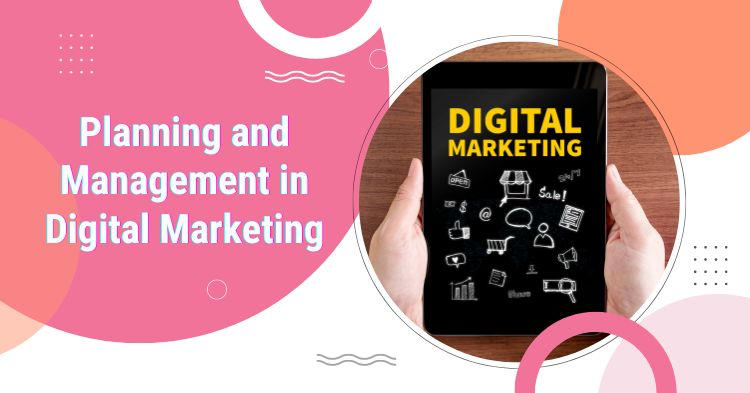Utilizing robust digital marketing tools for social media planning and management can streamline your workflow and enhance productivity. These tools cater to various facets of digital marketing, from automation to analytics, ensuring you have a comprehensive set of resources at your disposal.
Effective planning and management in digital marketing involve not only organizing your data-driven marketing strategies but also tracking their performance with precision. Using analytics platforms can provide insights into campaign performance, helping you make data-driven decisions that drive results.
Developing a Robust Digital Marketing Tech Stack
To build an effective tech stack, prioritize the essential tools and platforms that will support your marketing efforts. Your stack should include a Customer Relationship Management (CRM) system like HubSpot for managing customer interactions and data.
Marketing automation tools such as ActiveCampaign can enhance email marketing workflows, while SEO tools are necessary for optimizing your content for search engines.
For all-in-one solutions, Software as a Service (SaaS) products often offer multiple functionalities, from email marketing to project planning and management.
Implementing Effective Automation
Automation is key to efficient digital marketing. With marketing automation, you can streamline repetitive tasks and focus on strategy and creativity. Email marketing tools like ActiveCampaign automates email sequences to nurture leads.
Workflow automation tools sync tasks across different platforms, reducing manual work. Automating social media posts can also maintain your online presence consistently. This not only saves time but ensures that your campaigns are timely and relevant.
Optimizing With Analytics and Reporting
To ensure your marketing strategies are effective, use analytics and reporting tools. Google Analytics is fundamental for tracking website traffic and understanding user behavior.
Reporting tools compile data from various marketing channels, offering comprehensive insights into campaign performance. By making data-driven decisions, you can adjust your strategies in real time, optimizing your efforts for better results.
Combining these analytics can help you fine-tune your SEO tactics, improve your engagement rates, and ultimately, drive more conversions.
Mastering Social Media for Marketing Growth
Selecting the appropriate social media platforms is crucial. Platforms like Facebook and Instagram are excellent for broad audience engagement and visual content. LinkedIn is ideal for B2B marketing, and Twitter offers a space for quick updates and interactions. For reaching younger audiences, consider TikTok.
It’s essential to understand each platform’s audience to tailor your content accordingly. By focusing on the most suitable platforms, you’ll maximize your reach and effectiveness in social media marketing.
Tools for Effective Content Planning and Management
Utilizing tools like Hootsuite, Buffer, and Sprout Social can streamline your workflow. They allow you to schedule posts, manage multiple accounts, and curate content effortlessly. For graphic design, Canva is an excellent tool to create visually appealing posts.
These tools save time and ensure consistent posting, essential for building and maintaining engagement through content creation. With scheduled content, you can focus more on interacting with your audience and less on day-to-day content creation.
Tracking Performance and Engagement
Monitoring analytics is critical. Tools like Google Analytics and the built-in analytics of social media platforms give insights into what’s working and what’s not. Tracking metrics such as likes, shares, and comments helps you understand your audience’s preferences.
Engagement rates and follower growth are indicators of success. Implementing QR codes in your campaigns can also boost engagement with QR scanner apps for increased efficiency. Accurately tracking performance helps in refining strategies and achieving marketing growth.
Efficient Email Marketing Management
Efficient email marketing management is crucial for optimizing both conversion rates and customer retention. Mastering targeted campaigns and automation can significantly enhance your digital marketing efforts.
Crafting Targeted Email Campaigns
Creating targeted email campaigns involves understanding your audience segments and their preferences. Tools like Mailchimp and Klaviyo allow for advanced segmentation based on customer behavior, ensuring your emails are relevant.
Personalization is key to engagement. Use customer data from your CRM to tailor email content. Employing A/B tests can help determine which elements resonate best with your audience. These tests can include subject lines, images, or call-to-action buttons.
Automating your campaigns ensures timely delivery. Platforms often provide built-in automation workflows that can trigger emails based on user actions like sign-ups or purchases. This reduces manual effort and increases consistency.
Optimizing for Conversion and Retention
To convert and retain subscribers, focus on creating compelling content and a seamless user experience. Regularly update your email templates to keep the content fresh and engaging.
Utilizing landing pages and lead capture tools can aid in collecting email addresses effectively. Implement best practices for email marketing to maintain high open and click-through rates. Combine this with automation features from specialized tools to follow up with potential customers based on their interactions.
Incorporating risk flow measures, such as clear unsubscribe options and data privacy compliance, improves trust and reduces spam complaints. Consider integrating a digital signature SDK for enhanced security, which adds an extra layer of authenticity to critical communications.
Leveraging Project Planning and Management for Marketing Success
Effective project management is crucial for streamlining workflows and ensuring that your marketing team collaborates efficiently. Implementing strategies for team collaboration is vital to improving productivity. Tools like Trello and Asana facilitate task planning and management, helping teams stay aligned on project goals.
Using platforms like Slack for communication ensures team members are always in sync, minimizing miscommunication. Daily stand-ups help maintain momentum and ensure everyone is on the same page. A Kanban board can be particularly useful for visualizing tasks and phases of the project, making it easier to manage workflows.
Tools for Task and Resource Allocation
Efficiently managing tasks and resources can significantly impact project success. Monday offers robust features for tracking project timelines and milestones, which can help allocate resources effectively.
ClickUp allows integration with various tools, providing a comprehensive view of both tasks and resources. Smartsheet’s capabilities in resource management let you allocate tasks based on team capacity, track progress, and ensure optimal resource utilization. Features such as task list templates simplify task assignment and tracking, ensuring no deadlines are missed.
FAQs
Q1. What Is Planning in Digital Marketing?
Planning in digital marketing involves the strategic organization and coordination of various digital marketing activities to achieve specific goals. It includes defining objectives, outlining strategies, allocating resources, and setting timelines for executing campaigns across different digital channels.
Effective planning ensures that marketing efforts are targeted, cohesive, and aligned with overall business objectives.
Q2. What Is Planning Management in Marketing?
Planning management in marketing refers to the process of overseeing and optimizing the planning activities within a marketing strategy. It involves coordinating tasks, managing timelines, allocating resources efficiently, and monitoring progress to ensure that campaigns are executed effectively.
Planning management focuses on maximizing productivity, minimizing risks, and adapting strategies based on performance insights and market trends.
Conclusion
Mastering the right tools can significantly enhance your planning and management in digital marketing. Implementing a complete digital marketing strategy requires integrating components like SEO, content marketing, and social media.
Regularly optimizing your strategies based on real-time data ensures continuous improvement. Data-driven decision-making helps identify areas of strength and opportunities for growth in your marketing efforts.
Incorporating these tools and strategies into your workflow will enhance your efficiency and drive better outcomes in your digital marketing campaigns. Stay updated with the latest trends and technologies to maintain a competitive edge.









